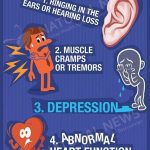
11 Health Benefits of Low-Carb and Ketogenic Diets
Carbohydrates make up about 55 percent of calorie consumption in people on the usual Western diet. Recommendations from organizations like the World Health Organization to restrict carbohydrate consumption help people minimize the risk of:
- Cardiovascular diseases
- Type II diabetes
- Obesity
The low-carbohydrate diet, a popular diet plan that restricts carbs, is gaining popularity as a weight management strategy. Although controversial, it has several health benefits.
There are several popular versions of low-carb diets these days.
A low-carb diet is linked to:
- Lower cardiovascular disease risk
- Improved glycemic management in diabetes
- Improved metabolic indicators
- Better weight reduction
However, before starting a low-carb diet, consult your doctor for safety and optimal results.
11 benefits of low-carb and keto diets
Eleven health benefits of low-carb and ketogenic diets include:
- Prevention or management of type II diabetes:
- Studies show increased type II diabetes risk with high-carb diets, especially refined carbs.
- Maintaining stable blood glucose levels is critical to prevent diabetic complications. Limiting carb consumption minimizes glucose in the bloodstream.
- This diet is traditionally used to prevent and treat type II diabetes.
- Recent research shows consistent low-carb dieting improves blood glucose management and weight loss. It also suggests high adherence to the diet for at least 12 months.
- Weight loss and reduced hunger:
- A ketogenic diet suppresses appetite, leading to less frequent hunger and quicker weight loss.
- Low-carb diets result in faster weight loss compared to low-fat diets.
- Lowering insulin levels prompts the body to burn existing fat reserves instead of creating new ones, as carbs stimulate insulin production.
- Low-carb and keto diets, high in fats and proteins, lower appetite and calorie intake.
- Studies indicate low-carb diets lead to fast weight loss, including fat loss, and are effective for long-term weight maintenance.
- Reduced triglyceride levels:
- Low-carb and keto diets help lower risk factors for heart diseases, including triglyceride levels.
- Triglycerides are a type of fat in the bloodstream. Extra calories are converted to triglycerides and stored as energy between meals.
- Excessive calorie consumption, especially from high-carb meals, increases triglycerides and heart disease risk.
- Increased good cholesterol levels:
- Low-carb diets raise high-density lipoprotein, a healthy cholesterol that lowers heart disease and stroke risks.
- A low-carb, good-fat-rich diet promotes high levels of healthy cholesterol.
- Improved cognitive performance:
- High-carb diets cause unstable sugar levels, resulting in a sugar crash, difficulty focusing, and reduced brain function.
- Low-carb diets may help prevent attention deficit hyperactivity disorder in children by controlling energy levels and enhancing focus.
- Better digestion:
- High-carb diets feed "bad bacteria" in the stomach and contribute to digestive issues.
- A low-carb or keto diet improves gut flora and supports digestive health.
- Reduced inflammation:
- Low-carb and keto diets induce ketosis, which produces anti-inflammatory ketones, reducing inflammation symptoms.
- Ketones also have pain-relieving effects similar to nonsteroidal anti-inflammatory drugs.
- The keto diet encourages anti-inflammatory foods, such as eggs, olive oil, coconut oil, and omega-3-rich foods.
- Potential cancer-fighting properties:
- High-carb diets fuel cancer cells and contribute to free radical damage. Low-carb diets prioritize fat as energy, which cancer cells cannot use.
- Low-carb diets may slow the generation of toxins and the harm they cause.
- Steady energy levels:
- High-carb diets cause fluctuating blood sugar levels and energy levels. Low-carb diets stabilize blood sugar and energy.
- Transitioning to a low-carb diet may cause temporary fatigue before your body adjusts.
- Ultimately, you will have better control over your energy levels.
- Proven intervention for epilepsy:
- Ketogenic diets are effective nutritional treatments for epilepsy, reducing seizure incidence by 90% after six months.
- Ketogenic diets require close supervision for young children due to initial adverse effects.
- Consult a doctor before considering nutritional treatment for epilepsy.
- Improved skin health:
- Low-carb diets provide room for beneficial fats, such as omega-6 and omega-3 fatty acids, which promote blood flow and skin health.
- Reducing refined sugar intake from high-carb meals reduces inflammation and supports skin health.
- Combining healthy fats and proteins with a skincare routine enhances skin health.


